Top 15 Morning Foods You Should Eat Every Day
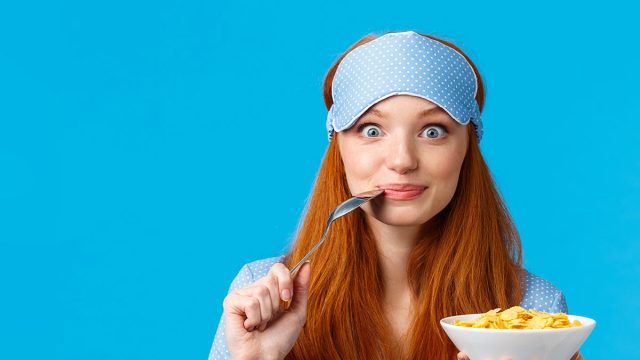
What you eat in the mornings can impact food choices for the rest of the day. "Breakfast is important for several reasons," registered dietitian Charlotte Furman tells UW Medical Center. "Eating a meal in the morning provides the necessary fuel for your body and brain. It can also help regulate hunger, reducing the urge to snack throughout the day. For children, eating breakfast has been positively associated with academic performance, as well as a decreased risk of obesity." So what should you eat? Here's what the experts have to say.
Greek Yogurt
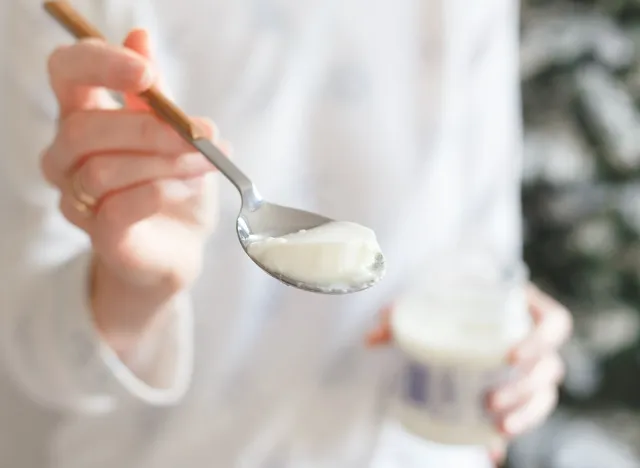
"Greek yogurt is an excellent source of protein and a great option if you're looking for something quick, filling, and portable," clinical nutritionist Heather Hodson, RDN, CDCES at NYU Langone Health, tells Vogue. "Greek yogurt contains less lactose than regular yogurt due to its production process, so many individuals with lactose sensitivities can actually tolerate it much more easily than other dairy products."
Avocado Toast
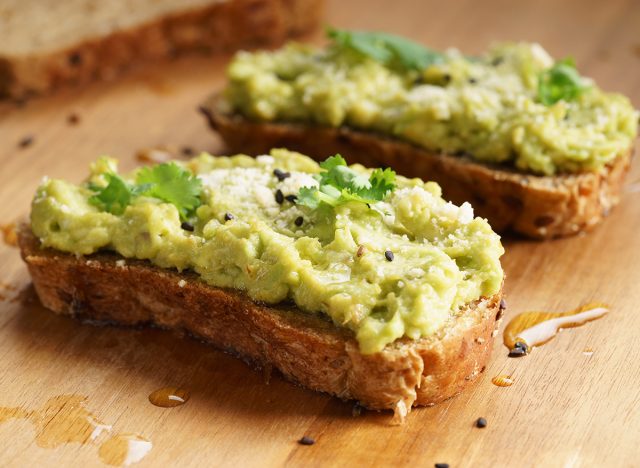
Avocado toast is packed with healthy fats and fiber. "While calorie-rich, avocados do not contain empty calories from added sugars, saturated fats, or alcohol, and are sodium-free," says Lancaster General Health. "Half an avocado is about 114 calories, but compared to other fruits, they still have fewer calories than fatty condiments like mayonnaise, which has 100 calories in one tablespoon!"
Tofu
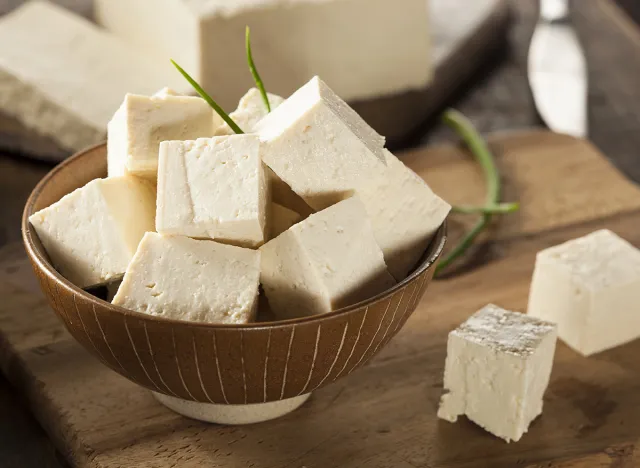
Tofu is a great source of plant-based protein. "Foods rich in protein may be able to increase TEF (thermic effect of food) energy use," Sammie Gill, RD, tells ZOE. "In fact, approximately 20–30% of the energy in protein is used just to digest food, compared with 5–10% in carbohydrates and 0–3% in fats. Also, research shows that protein reduces appetite. This is because when you eat protein-rich foods, they suppress hunger hormones like ghrelin and prompt feelings of fullness."
Eggs
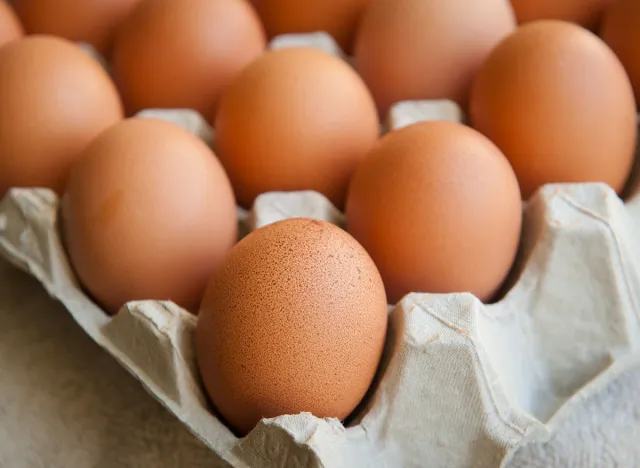
Eggs are the ultimate healthy breakfast food. "Eggs contain protein and fat-soluble vitamins such as vitamins D and E," dietitian Melinda Gong tells UC Davis Health. "If you want to consume less cholesterol, egg whites also provide a lot of protein without any added fat and cholesterol. A breakfast sandwich made up of a whole grain English muffin, one egg and a slice of tomato or avocado is a balanced breakfast that will keep you going all morning."
Coffee
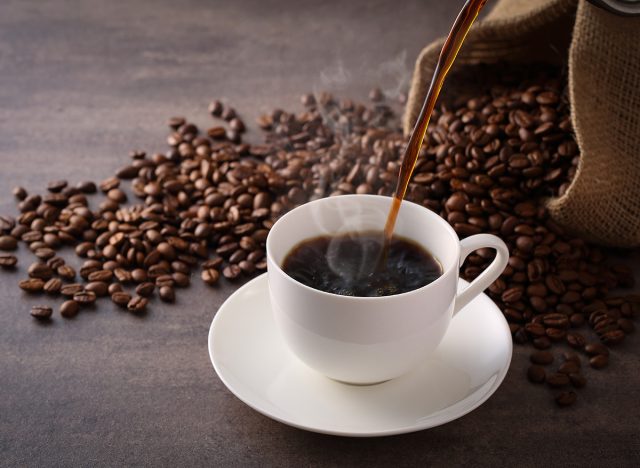
Coffee can help give you a boost of energy in the morning. Just avoid added sugars and syrups. "There have been quite a few studies that suggest higher blood concentrations of caffeine may be associated with a lower body mass index (BMI) and lower body fat mass," Allegra Picano, RDN, tells Henry Ford Health.
Healthy Cereal
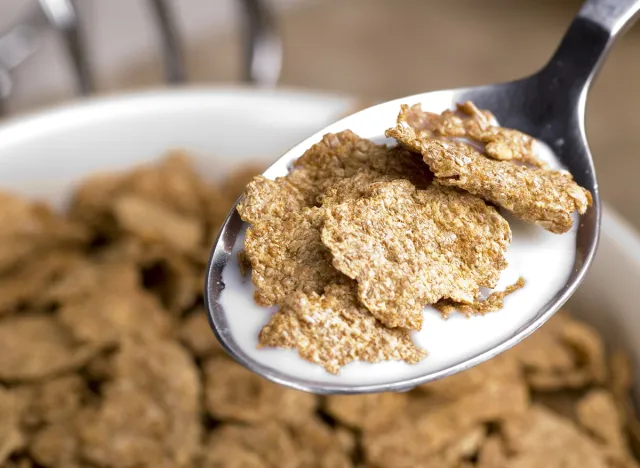
"A healthy cereal is one that is minimally processed and is not full of added sugars, food dyes, preservatives, and other components that could negatively affect health," clinical dietitian Regina Shvets tells Johns Hopkins Health. "Look for cereal that has the fewest ingredients, with the first being 100% whole grain. Avoid those with more than 5 grams of sugar per serving."
Fruit and Frittatas
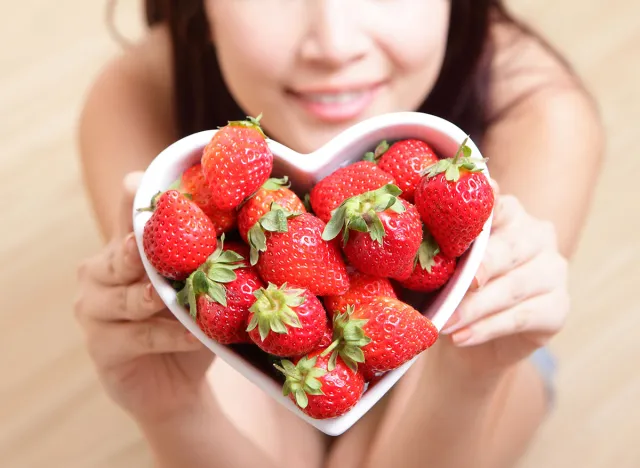
Breakfast doesn't have to be complicated—a little bit of food prep can make mornings easier. "Another great option when you are in a time crunch is a piece of fruit like apple or banana with some nut butter or Greek yogurt with granola; these can be made ready in minutes," Furman says. "You can also make breakfast scramble wraps or mini-frittatas that can be frozen individually and microwaved in the morning for a quick breakfast."
Oatmeal
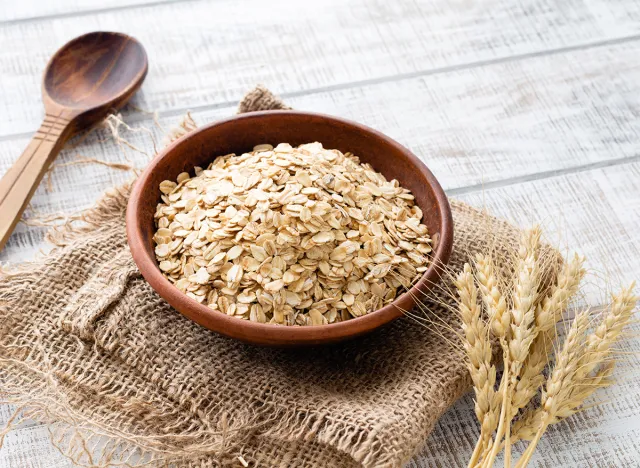
Oatmeal is easy to prep and full of fiber. "If you feel full for longer after eating, it's easier to go from meal to meal without grazing on unhealthy snacks," Beth Czerwony, RD, tells the Cleveland Clinic. "In the end, that cuts down on extra calories you might consume."
Nuts
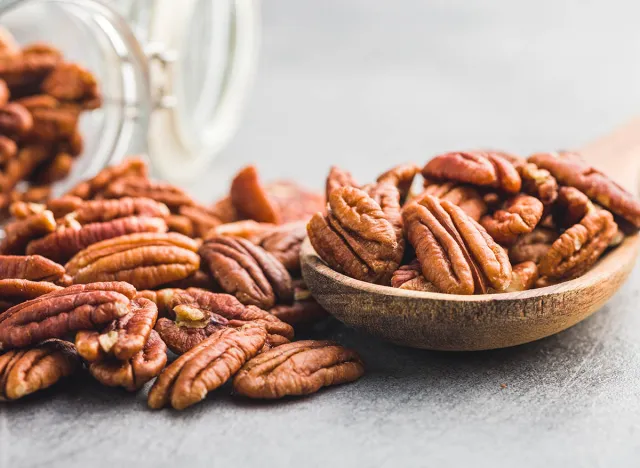
Nuts are energy-dense, so a little goes a long way. "In just a handful of nuts, which is about an ounce or a quarter of a cup, you get a lot of bang for the buck. They contain anywhere from 3 to 7 grams of protein per ounce, 1 to 3 grams of fiber, and 160 to 200 calories," says registered dietitian Kathy McManus, director of the Department of Nutrition at Harvard-affiliated Brigham and Women's Hospital.
Whole Grain Toast
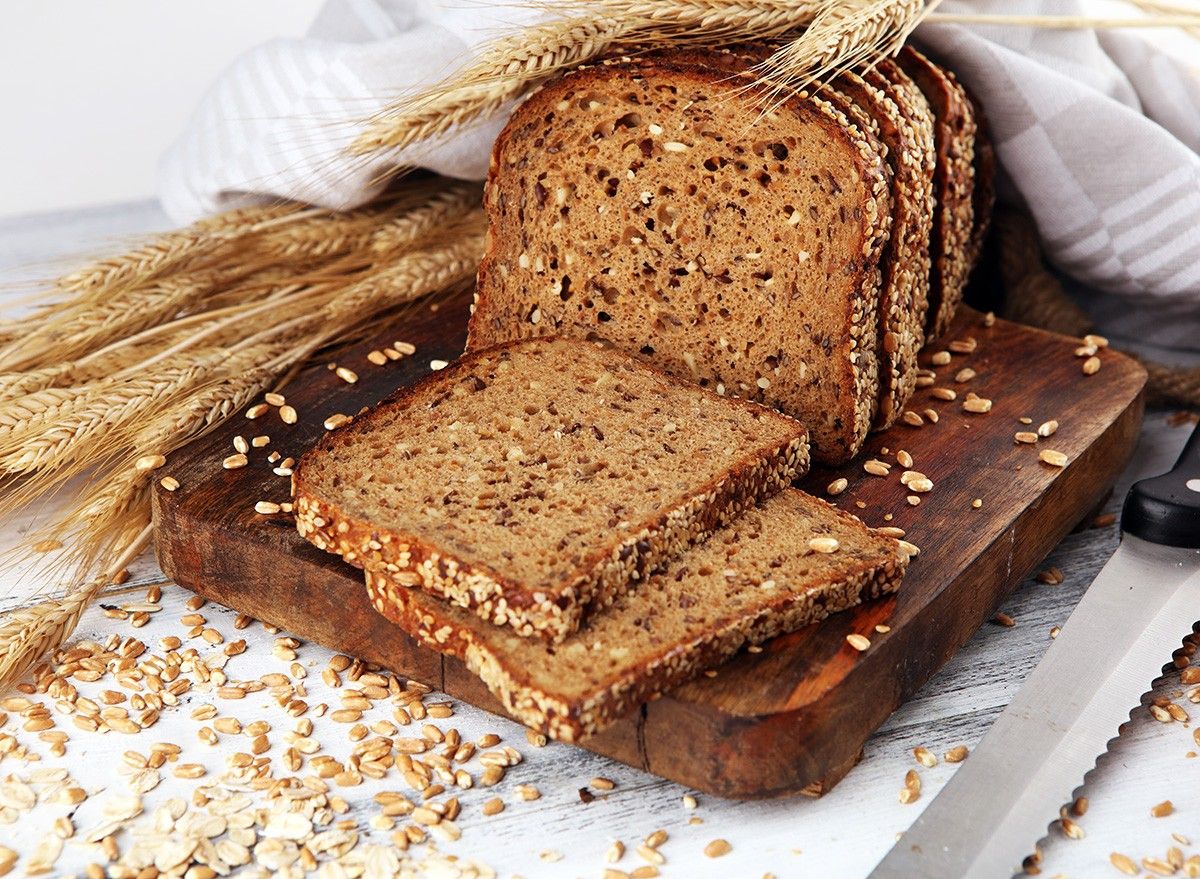
Whole grains are packed with fiber, which will keep you full for longer. "In addition to weight control, higher fiber diets can also help to prevent type 2 diabetes and cardiovascular disease," Dr. Frank Hu, professor of medicine at Harvard Medical School and professor of nutrition and epidemiology at the Harvard School of Public Health, tells Harvard Health.
RELATED: I'm a Doctor and These Are 5 Big Reasons Why I Would Never Take Ozempic to Lose Weight
Smoked Salmon
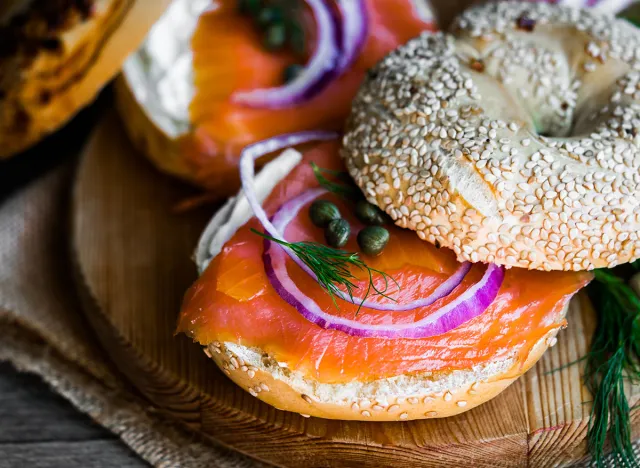
Smoked salmon (or regular salmon if you're worried about sodium) is a fantastic breakfast option. "Though most types of fish and seafood are lean and low in fat, salmon is famous for its higher fat content," Allison P. Lutz, RD, tells UPMC HealthBeat. "It's a top source of omega-3 fats, particularly eicosapentaenoic acid (EPA) and docosahexaenoic acid (DHA). These fats (also known as fish oil) support heart health, reduce inflammation, and promote optimal brain function."
Chia Seeds
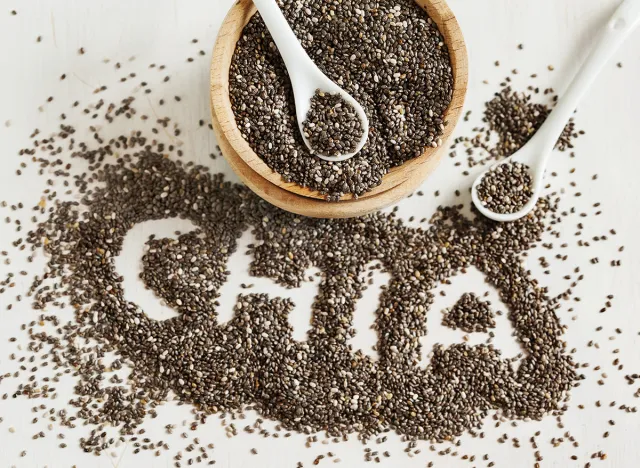
Try adding nutritious chia seeds to your breakfast smoothies. "Chia seeds have many nutritional benefits," Romi Londre, RDN, CD, tells the Mayo Clinic. "They are high in omega-3 fatty acids and fiber. Chia provides a similar amount of omega-3 fatty acids as ground flaxseed in the form of alpha-linolenic acid, or ALA. They can help with weight loss."
Glass of Water

Start your day with a nice glass of water—add lemon for extra benefits. "Science suggests that water can help with weight loss in a variety of ways," according to Johns Hopkins University. "It may suppress your appetite, boost your metabolism, and make exercise easier and more efficient, all of which could contribute to results on the scale."
Grilled or Steamed Asparagus
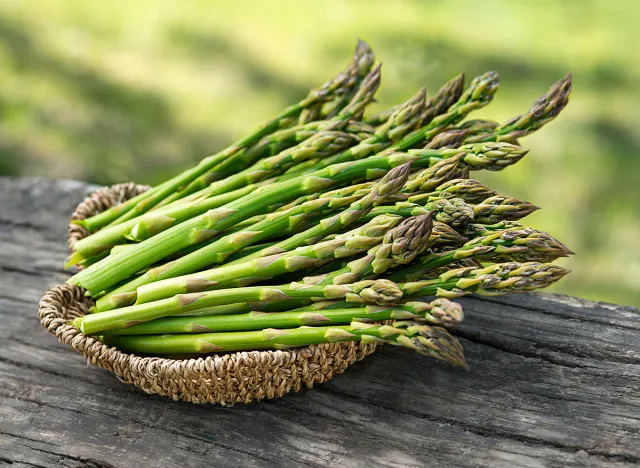
Enjoy asparagus with your breakfast eggs. "If you are watching your calories, asparagus can help you maintain your weight," according to the University of Arkansas System Division of Agriculture. "With only 30 calories per one cup serving and low in fat, you can see how it can help with weight loss."
RELATED: I Lost 8 Pounds in 3 Weeks on the Candida Diet, and Here Is What You Need to Know
Cottage Cheese
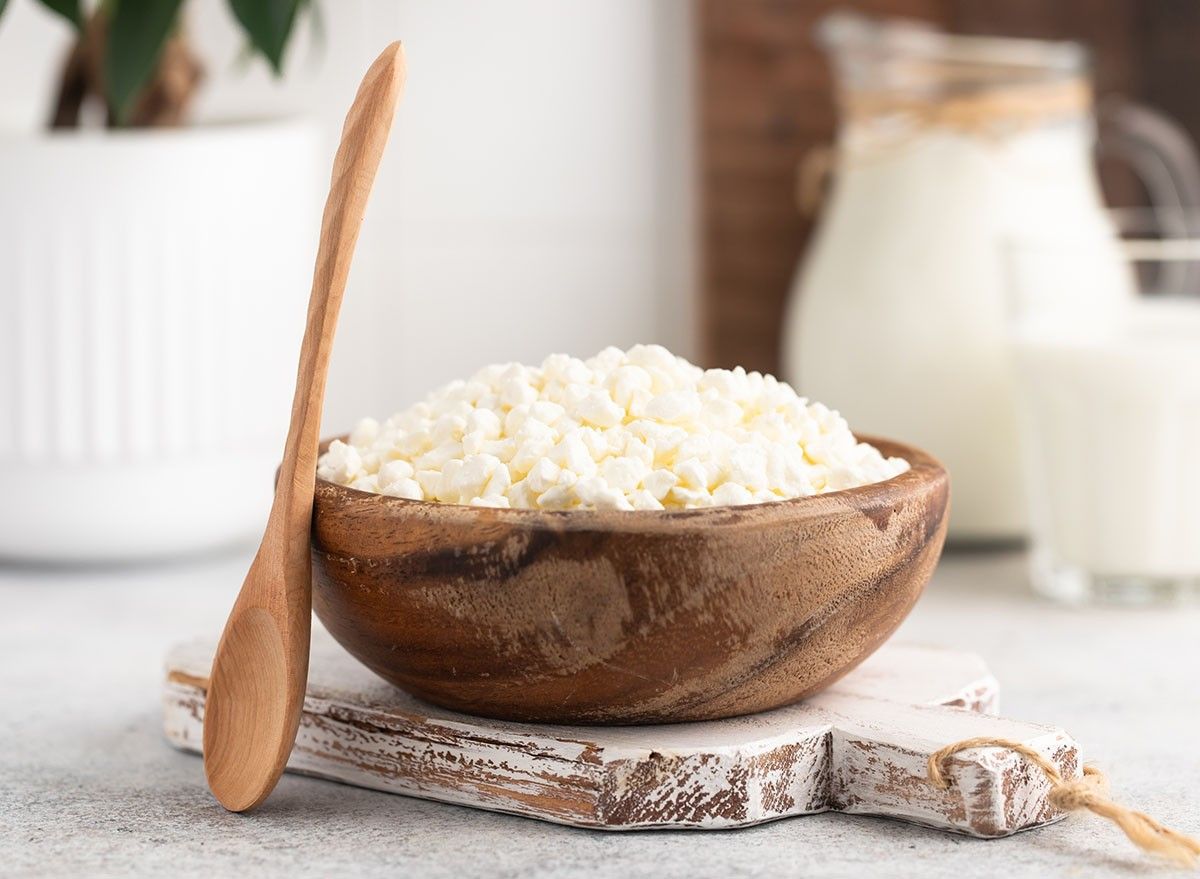
Cottage cheese is making a comeback! "In a half-cup serving of cottage cheese, there are approximately 14 grams of protein," Alison Graziano, RDN, LDN, tells Massachusetts General Hospital. "Making it an excellent choice for individuals looking to increase their protein intake." And if you enjoyed this article, take advantage of these 15 Quick Ways to Lose Body Fat Percentage in a Week.




